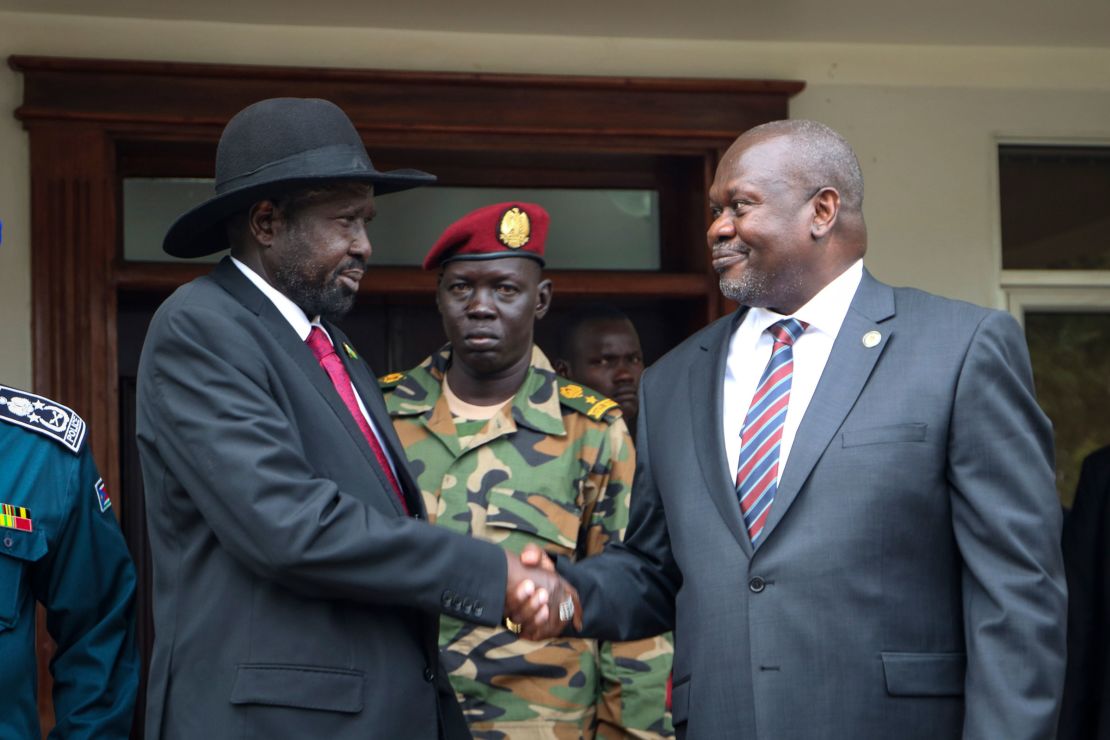
South Sudan’s Fragile Peace Faces Collapse as Tensions Rise Again
A peace agreement that ended a devastating civil war in South Sudan is now on the brink of collapse, raising alarming concerns that the world’s youngest and one of its poorest nations could plunge back into conflict. South Sudan, which gained independence from Sudan in 2011 after decades of pro-independence struggle, has long struggled with internal divisions, particularly along ethnic lines, that have fueled persistent unrest.
The country descended into civil war in 2013, followed by another conflict in 2016, which led to the deaths of tens of thousands. The violence finally subsided in 2018 when a fragile peace agreement was signed, but the situation remains highly volatile.
New Tensions Threaten Fragile Peace
The current crisis was sparked by the recent arrest of opposition leader Riek Machar, who leads the SPLM/A-IO party, a key player in the 2018 peace deal. Machar’s detention, which occurred this week, has triggered immediate backlash from his party, which declared that his arrest "effectively brings the peace agreement to a collapse."
"The prospect for peace and stability in South Sudan has now been put into serious jeopardy," the SPLM/A-IO said in a statement, further intensifying fears of a return to full-scale war. The party had previously accused President Salva Kiir's government of undermining the peace deal by arresting key officials and allowing foreign military intervention.

Escalating Military and Political Strife
Machar’s arrest follows the detention of several high-ranking SPLM/A-IO members and a recent escalation involving Ugandan troops, who were invited by Kiir’s government to assist in combatting local militias. The SPLM/A-IO condemned Uganda's military actions, describing them as an unwarranted attack on civilians and a breach of the peace deal.
Machar himself condemned Uganda's involvement in a letter to the United Nations on March 23, further accusing Kiir’s government of violating the terms of the agreement. The Ugandan military presence, particularly in the ongoing clashes with the White Army militia, is seen as a destabilizing factor that may unravel the fragile peace in South Sudan.
South Sudan’s power-sharing government, which has yet to hold a national election, consists of Kiir and five vice presidents, including Machar. While the government and opposition have intermittently worked together since the 2018 peace accord, deep ethnic divisions between Kiir’s Dinka tribe and Machar’s Nuer group continue to fuel tensions.
Ethnic Clashes and Growing Humanitarian Crisis
Recent fighting in the town of Nasir, where government forces clashed with the White Army, a militia affiliated with the Nuer, has further strained the country’s fragile peace. At least dozens have been killed in the violence, and local media reports suggest that the situation could spiral out of control.
The World Bank’s October report on South Sudan painted a grim picture of the country’s struggles, noting that violence, political instability, and poor resource management have exacerbated the humanitarian crisis. Two-thirds of the population lives below the poverty line, surviving on less than $2.15 per day, with limited access to basic services or infrastructure.
Despite its economic difficulties, South Sudan has taken in over half a million refugees from neighboring countries such as Sudan, the Democratic Republic of the Congo, and the Central African Republic, further stretching the country’s already limited resources.
International Concern and Calls for De-escalation
The United Nations has expressed grave concern over the current situation. UN Secretary-General Antonio Guterres warned that the country was “one step closer to the edge of a collapse into civil war,” citing the recent unrest as a dark reminder of the violence that plagued the nation in the past.
“We cannot let the situation fall over the abyss,” Guterres added, underscoring the urgent need for de-escalation. UN spokesperson Stéphane Dujarric echoed the concerns, emphasizing that Machar’s arrest and the unfolding violence risked undoing years of fragile peacebuilding efforts.
International actors, including the United States, the European Union, and several European nations, have called for an immediate ceasefire and urged Kiir to reverse Machar’s arrest to prevent further deterioration of the situation. A joint statement issued by the embassies of the U.S., UK, France, Germany, Netherlands, and Norway, along with the EU delegation, stressed the importance of dialogue and de-escalation in order to preserve the peace agreement.
A Nation on the Brink
South Sudan’s future hangs in the balance as tensions continue to rise. With ethnic divisions still running deep and economic challenges mounting, the road to lasting peace appears as precarious as ever. The arrest of Riek Machar and the ongoing military clashes are putting the country at risk of another devastating war, and the international community is closely watching to see if South Sudan can avert disaster once again.
As the situation unfolds, the world is left wondering if the fragile peace agreement will withstand the pressure or if South Sudan will once again descend into the chaos that has plagued it for much of its brief history.
WafricNews – Juba, South Sudan
WafricNews – Juba, South Sudan


Comment
To post a comment, you have to login first
LoginNo Comments Yet...